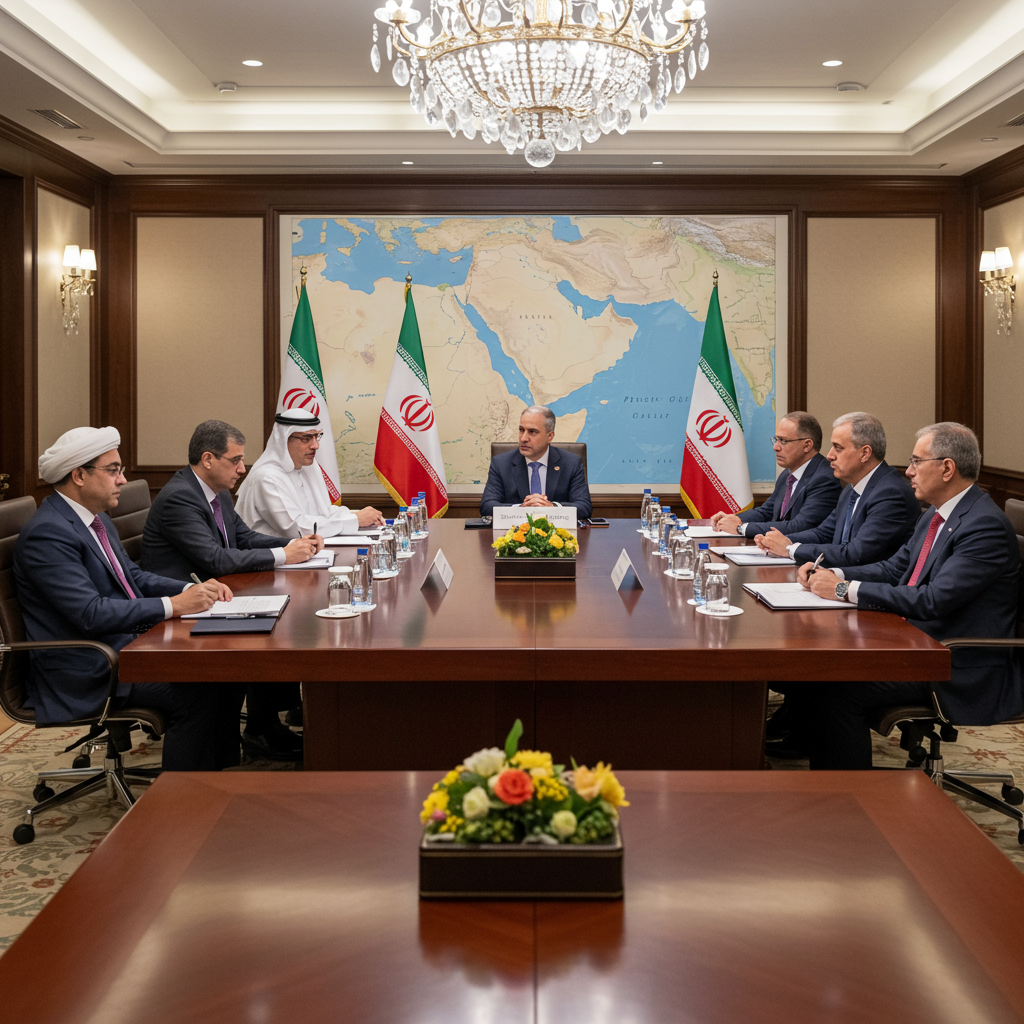Amidst Regional Turmoil, Gulf States Seek Stability with Iran
As the conflict involving Israel intensifies across the Middle East, a complex diplomatic dance is unfolding: Gulf monarchies, historical rivals of Iran, are maintaining and even deepening engagement with Tehran. This strategic maneuvering highlights a pragmatic approach to navigate escalating regional tensions fueled by the ongoing war in Gaza and flare-ups on other fronts.
The backdrop to this delicate balancing act is a region on edge. Recent weeks have seen significant exchanges between Israel and Iran-backed proxies, notably Hizbollah in Lebanon. Following the assassination of senior commanders, including Hizbollah’s Fuad Shukr and Hamas leader Ismail Haniyeh (which Iran blames on Israel), tensions spiked dramatically.
The Escalation Context: Israel-Hizbollah Exchanges
Recent major confrontations illustrate the volatile environment. One significant event involved Israel launching strikes with over 100 fighter jets on what it described as more than 40 Hizbollah missile and rocket sites. Hizbollah retaliated with a substantial barrage, launching hundreds of rockets and drones at Israeli military targets. While casualties were relatively contained in these specific exchanges – one Israeli soldier killed and two wounded, with three presumed militants killed in Lebanon – the scale of the attacks underscored the potential for wider conflict.
Despite these clashes, signals of potential de-escalation have emerged from figures like Hizbollah leader Hassan Nasrallah, who advised residents who fled border areas to return, framing recent actions as sufficient retaliation. However, the regional landscape remains fraught with risk, particularly concerning Iran’s stated intent to respond to Haniyeh’s killing on its own timeline, promising a “certain, precise and calculated” reaction while emphasizing it does not seek escalation but is not afraid of it.
Why Gulf Nations Engage Iran
For Gulf states, the raging Israel conflict presents significant challenges and risks, including:
Risk of Spillover: Direct confrontations between Iran or its proxies and Israel could easily destabilize the entire region, impacting Gulf security and economies.
Economic Interests: Stability is paramount for oil-exporting nations reliant on global markets and investment. Escalation threatens trade routes and investor confidence.
Managing Proxies: Iran wields influence over various non-state actors across the Middle East. Engagement provides a channel, however fragile, to potentially mitigate the actions of these groups.
Navigating Great Power Dynamics: As traditional allies of the United States, Gulf states find themselves in a tricky position. While the US seeks to contain Iran, Gulf nations must also coexist with their large neighbor and its allies.
This pragmatic engagement with Iran, despite historical animosity rooted in sectarian differences and regional power struggles, serves as a critical de-risking strategy. By keeping lines of communication open, Gulf monarchies aim to better understand Iran’s intentions, potentially influence outcomes, and protect their own national interests amidst the storm.
Stalemate in Gaza, Pressure on the Region
The continued impasse in ceasefire and hostage negotiations for Gaza further exacerbates regional tensions. Efforts in Cairo have stalled, with Hamas rejecting proposed changes and insisting on a permanent ceasefire and full Israeli withdrawal – points Israel, under Prime Minister Netanyahu, has resisted, particularly regarding retaining a military presence near the border.
This persistent conflict in Gaza, now ten months on, combined with the active northern front involving Hizbollah (which has displaced approximately 70,000 Israelis), maintains acute pressure on regional stability. This constant state of tension reinforces the necessity for Gulf states to engage all key players, including rival Iran, in a bid to prevent a wider conflagration that could engulf the entire Middle East. The strategic engagement with Tehran, even as conflicts rage, underscores a calculated effort by Gulf monarchies to prioritize regional stability and their own security in uncertain times.




